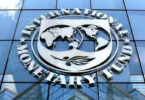NEW YORK (Reuters): Citigroup’s (C.N) third-quarter profit beat estimates on Friday as it benefited from a surge in trading revenue and investment banking fees while undertaking its biggest overhaul in decades.
The bank said it will cut management layers from 13 to eight as part of a sweeping reorganization. In the two top layers of leadership, 15% of functional roles were reduced, Citi said in a presentation, and it has eliminated 60 committees.
Citi’s finance chief Mark Mason told reporters on a call that it was “a very strong quarter” for the bank’s markets division as volatility picked up, lifting performance in fixed income and commodities.
US consumer finances are still healthy in a broadly uncertain environment, Mason told reporters on a conference call. “The US keeps surprising us with its resilience,” he said. Still, the bank predicts a mild recession in the first half of next year.
The third-largest US lender set aside more money to cover souring loans but said delinquency levels were still low compared to historical levels. Citi’s total provision for the credit portfolio rose to $17.6 billion from $16.3 billion a year earlier.
US banking giants have benefited from the Federal Reserve’s campaign to quell inflation, which has increased borrowing costs and helped banks earn more from customer interest payments.
Citi increased its forecast for net interest income (NII) this year to more than $47.5 billion from $46 billion, excluding markets. It also plans a modest level of buybacks in the fourth quarter, Mason said.
“The market will view these results as better than expected and see the change in NII revenue guidance as constructive as it implies an improved revenue mix against a more uncertain macro-economic backdrop,” Goldman Sachs analysts said.
Citi shares gained 3.2%.
EPS BEAT ESTIMATES
Citi’s net income rose 2% to $3.5 billion from a year ago, while earnings per share remained stable at $1.63 per share. On an adjusted basis, it earned $1.52 per share to beat the LSEG estimate of $1.21.
Revenue at Citi’s institutional clients group that houses its Wall Street operations rose 12% from a year ago, fueled by a 10% gain in trading revenues to $4.5 billion. The fixed income brought 14% higher revenue.
Citi’s overall revenue climbed 9% to $20.1 billion, it said. That was better than expected, Oppenheimer analyst Chris Kotowski wrote in a note.
Investment banking fees jumped 34%. The gains were a bright spot after several quarters of depressed dealmaking.
Revenue for its personal banking and wealth management division jumped 10% to $6.8 billion. Deposits at the end of the third quarter came in at $1.3 trillion, down 3% from a year earlier, as customers moved to high-yielding assets.
CEO Jane Fraser announced a sweeping reorganization last month that will disband the Institutional Clients Group and give her more direct oversight over the company’s businesses. The new structure is not yet reflected in the third-quarter results.
Citi will provide estimates about the scale of layoffs and cost savings in the fourth quarter.
Fraser has said there was “no room for bystanders” as the bank embarked on its biggest overhaul in almost two decades. The changes are being rolled out at a time of economic uncertainty that has weighed on some of Citi’s key businesses like trading.
Expenses rose 6% to $13.5 billion due to rising costs and investments in control systems. It included severance payments for employees who were laid off as it sold some international consumer businesses. Citi is close to concluding its divestitures in Asia.
Rivals Wells Fargo (WFC.N) and JPMorgan Chase (JPM.N) also reported higher quarterly profits on Friday, boosted by a rise in interest payments.







